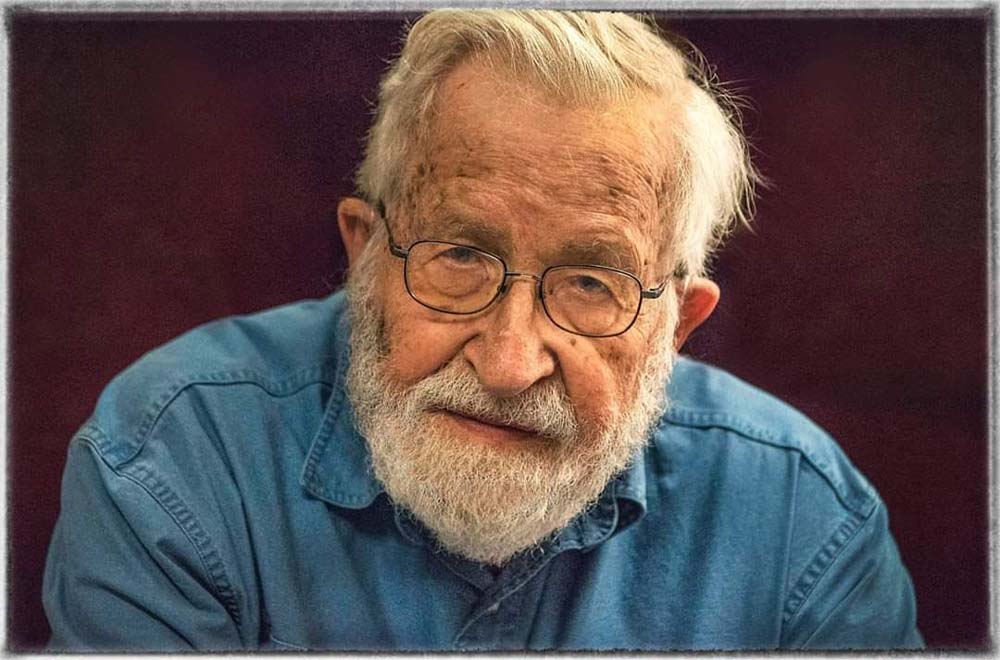by HASSAN MIRZA

This conversation with Professor Noam Chomsky will be presented in a three part series. Part 1 covers American culture and politics. Part 2 covers media, intellectuals and imperialism, along with science, language and human nature. Part 3 will include a conversation regarding religion and spirituality, alongside a discussion about the Indian subcontinent, climate change and the migration crisis.
My email exchange with Professor Noam Chomsky began in 2017. I had read many of his writings and was curious about his views on a variety of topics. I sent him an email out of curiosity and what had started as an occasional email exchange at first soon turned into a habit. As a result, I kept writing to him for the next few years, and he was always generous enough to answer my questions. What I eventually learnt from him is that the world is a complex and dynamic place which does not lend itself easily to stereotypes, dichotomies and simplistic explanations. Also, I learnt that having an open mindset is an antidote to many, if not all, of the problems we face as a species.
The interview presented below is a compilation of some of the most interesting questions and responses over the course of our correspondence. Professor Chomsky himself has read and approved the material and was satisfied with the quality and content. I hope you derive as much value from this conversation as I have.
American Culture and Politics
Hassan Mirza (HM): Let’s talk about the United States (US); I am interested in the US economy for several reasons. Its economics departments and STEM research centres attract the best students from the developing world.
Noam Chomsky (NC): It makes good sense to be concerned with what goes on in the US, whether in academic departments of economics or in the general economy and society. Namely, US power, which is unparalleled.
HM: What were the real reasons which caused the US to wage wars in Iraq and Afghanistan? Was it for oil and natural resources or only for power projection? Did these wars benefit the US financially?
NC: Both. In 2007, when Bush had to reach a status of forces agreement, a formal declaration made the war aims pretty clear: permanent military bases and preferential treatment for US energy corporations. Both were rejected. Costs to the society were huge. Some benefited from the war and occupation, of course. Arms manufacturers, contractors, etc.
EACPE for more
